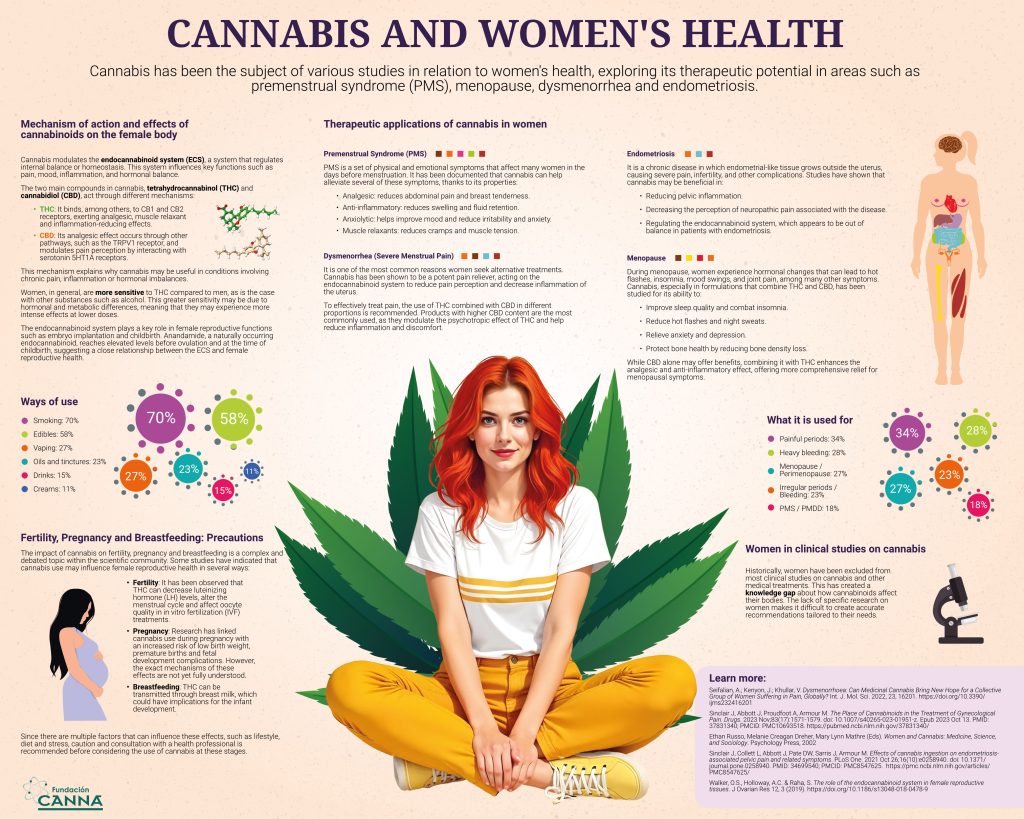Premium Cannabis and Accessories

Cannabis and Women's health
Medical cannabis is transforming women’s health by addressing pain, mental well-being, and reproductive issues with innovative, natural solutions
Cannabis has long been a valuable ally in women’s health, offering support for both physical and emotional well-being. Conditions such as migraines, fibromyalgia, and chronic pelvic pain disproportionately affect women, and medical cannabis has shown significant potential in managing these symptoms. By interacting with CB1 and CB2 receptors in the endocannabinoid system, cannabis helps regulate pain pathways, providing relief where many conventional treatments fall short. Patient testimonials and emerging clinical observations continue to support its role in effective pain management.
Mental health is another key area where cannabis shows promise. Anxiety and depression, often intensified by hormonal fluctuations, are common concerns among women. Medical cannabis has been shown to help ease these symptoms, offering quicker relief than many traditional antidepressants and with fewer side effects. It supports a sense of calm and emotional balance, contributing to overall mental well-being.
Cannabis may also offer targeted benefits for menstrual and menopausal health. From relieving cramps and mood swings to reducing hot flashes, insomnia, and irritability during menopause, its therapeutic versatility continues to gain recognition. However, its use during fertility and pregnancy requires more research and it is currently advised to avoid use when pregnant or breast-feeding.
Medical cannabis represents a promising evolution in women’s healthcare. By targeting conditions such as chronic pain, anxiety, depression, and hormonal imbalances, it offers a versatile and effective therapeutic option. As research deepens and awareness grows, the importance of inclusive access, education, and supportive policy becomes increasingly clear. The path forward is grounded in science and shaped by the real needs of women, positioning cannabis to play a transformative role in the future of care.



